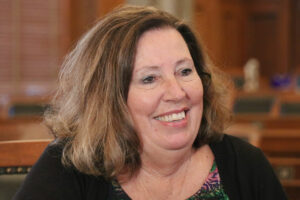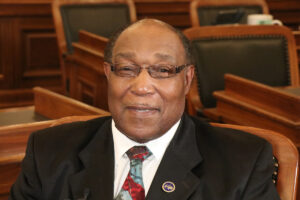Topic: Juvenile justice

Interview of Darlene Cornfield, October 9, 2020
Interviewed by Patty Clark
Former State Representative Darlene Cornfield reflects on her six sessions in the Kansas House representing the 90th House District (Sedgwick Co.). She describes the issues that come back year after year and the challenges faced by a new legislator. She identifies the difficulties faced by conservatives at a time when the Republican party was undergoing an ideological change. Cornfield observes that the citizen legislature is most effective but did not favor term limits.

Interview of Ben Scott, January 14, 2022
Interviewed by Joan Wagnon
Ben Scott describes his life of service as an activist for schools and the community as well as his church. Scott's early experiences with segregation and racism informed his later activities as a member of the Board of Education in Topeka as the district sought to achieve racial balance in its public schools. The desegregation plans he and Sherman Parks Jr. developed in 1990's were instrumental in dismissing the federal lawsuit against the district. Scott was a leader in the Topeka and Kansas NAACP. He pointed out their priorities were finding enough Black teachers as Show Morewell as improving housing. Racial profiling was another NAACP concern that he carried to the Kansas legislature along with his concerns about student achievement and teachers having enough resources. In his interview, Rep. Scott talks candidly about racism in the juvenile justice system, racial profiling, Critical Race Theory (CRT), and the role of the church in dealing with racism. His hopes for continued legislative service were derailed by loss of election in 2016; however, he still pushes for developing standards for teaching Black history.
Highlights -- short excerpt from the interview
